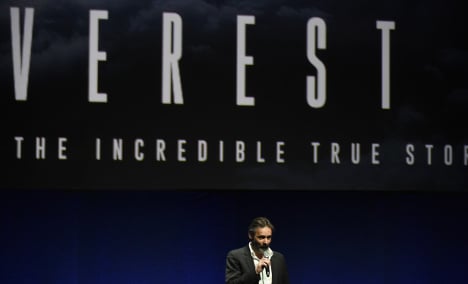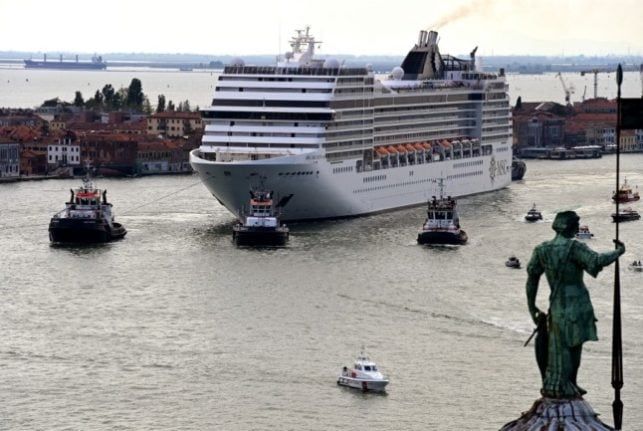Director Baltasar Kormakur's two-hour film recounts the events of May 10th-11th, 1996, when eight climbers died near the summit after being caught in ferocious blizzard conditions.
In particular, it focuses on the internal dynamics and characters of two groups led by New Zealander Rob Hall, played by Australian actor Jason Clarke, and American Scott Fischer, played in surfer-dude style by Jake Gyllenhaal.
Portrayed as equally talented but temperamentally contrasting, the two men were among those who died over the course of two days in which no fewer than 34 people were attempting to reach the summit in brutal conditions, ultimately resulting in a series of life-and-death decisions having to be made under almost unimaginable duress.
Hall, famously, was able to speak to his pregnant wife, played in the film by Keira Knightley, via a combination of two-way radio and satellite phone, just before he perished.
Given that such poignant details of the tragedy were widely publicized at the time, the challenge for Kormakur was to construct a narrative capable of retaining viewers' attention despite most of them knowing how the story ends.
He has taken that on with a screenplay that is part disaster movie, part thriller and part psychological study of the varying mindsets and motivations that lie behind the mountaineering cliche “because it's there”.
Too many amateurs
The British-produced, US-financed film includes sections shots in the Italian Dolomites, Kormakur's native Iceland and at Everest base camp in Nepal.
The disaster, at the time the worst there had been on Everest, raised questions over whether the increasing commercialisation of climbing had led to the dangers of trying to conquer the summit being under-estimated.
A number of experts have suggested that bottlenecks in the approach to the summit may have been a factor in the deaths, with the presence of too many insufficiently-experienced amateur climbers resulting in too many reaching the summit after 2pm – seen as the deadline to allow for a safe descent.
Kormakur's vision of events certainly suggests commercial pressures to get as many clients to the top may have contributed to the fatalities, but it avoids pointing a finger of blame at any of the surviving protagonists, some of whom have published their own, contradictory, accounts of what happened.
“Everest” is being shown out of competition, with festival director Alberto Barbera hoping his curtain raiser will have a similar impact to “Gravity”, which opened in Venice two years ago and went on to win a slew of Oscars, and “Birdman”, which also enjoyed critical and commercial success after being unveiled on the Lido last year.
Venice back on the map
Those two successes have helped to put Venice firmly back on the international festival map after several years in which it had appeared destined to become completely eclipsed by Toronto.
Also due to be shown for the first time on Wednesday was streaming giant Netflix's debut foray into feature films, “Beasts of No Nations”.
The Carkey Fukunaga-directed drama about child soldiers in Africa is among 21 works competing for the festival's top prize, the Golden Lion.
Featuring Idris Elba and an otherwise largely unknown cast, the adaption of Uzodinma Iweala's novel will be released in October simultaneously to a limited number of cinemas and to Netflix's 65 million subscribers around the world.
Major cinema chains in the United States and elsewhere have so far refused to screen the film in protest at being deprived of their customary exclusivity period.
Despite their opposition, most industry figures see such releases as likely to become the norm for all but the biggest blockbusters in the near future as broadband technology transforms how film lovers opt to pursue their passion.
Everest is one of two major productions being given a first screening during the festival.
Johnny Depp is due in town later in the week for the premiere of Scott Cooper's “Black Mass”, in which the “Pirates of the Caribbean” star plays Irish-American mobster James 'Whitey' Bulger.
There is also much excitement about the unveiling of “The Danish Girl”, the latest work by “The King's Speech” director Tom Hooper.
It features Oscar-winning British actor Eddie Redmayne in the role of a Danish-born artist who was one of the first people to undergo sex reassignment surgery.



 Please whitelist us to continue reading.
Please whitelist us to continue reading.
Member comments